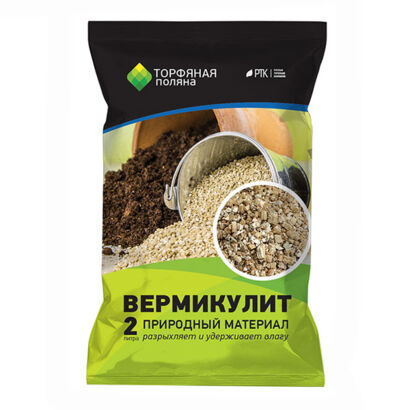Vermiculite for plants
Vermiculite is a highly porous mineral with air between the scales. Its structure makes it possible to achieve the necessary aeration properties from the substrate, in which the earth does not cake, a crust does not form on its surface, it remains loose
| Producing country | Russia |
Vermiculite is a natural mineral that forms in the earth's crust. Under the influence of a high temperature of 800°C, it turns into a loose, highly porous material resembling small scales. Vermiculite contains oxides of magnesium, calcium, potassium, iron and a huge amount of trace elements. It loosens the soil well, absorbs moisture, and then gradually gives it to plants.
Purpose
- Optimizes moisture and air circulation.
- Ideal for rooting cuttings, sowing seeds and growing plants; for mulching to retain moisture.
- Improves the structure of the substrate.
- Helps plants withstand periods of forced drought due to high water holding capacity.
Uses
- Additive for flower soil
When preparing the flower soil, add vermiculite to the soil in a ratio of 2:10 and mix. - Mulching
Scatter vermiculite on the surface of the substrate with a layer of 0.3-0.5 cm to retain moisture. This method is suitable for preventing the development of mold and moss. - Sprouting seeds and rooting cuttings
Moisten vermiculite, pour it into planting containers, sow seeds or plant cuttings. Lightly water, cover with a layer of vermiculite 0.5 cm thick. Spray occasionally
